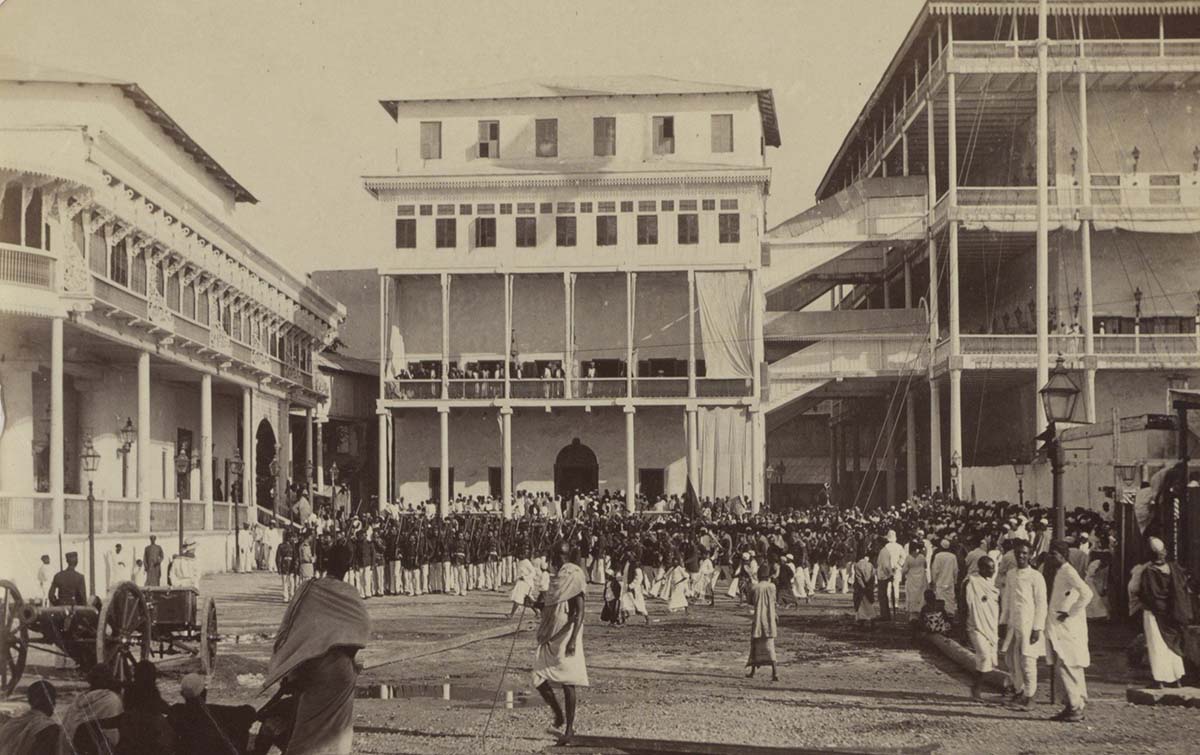The Anglo-Zanzibar War
The shortest war in history began (and ended) on 27 August 1896.

The Anglo-Zanzibar War has the dubious honour of being the shortest war in history, lasting around 38 minutes from the outbreak of hostilities.
Following the sudden death of the Sultan of Zanzibar, the British consul found himself outflanked when the sultan’s nephew declared himself the new ruler. The consul reminded him that all new appointments were subject to approval from the British under the terms of a protection treaty. Instead of demurely backing down, Khalid bin Barghash barricaded himself in the palace with around 2,800 defenders.
The British response was a typical piece of ‘gunboat diplomacy’. An ultimatum was sent to Khalid to resign, while three cruisers, two gunboats, 150 marines and sailors and 900 Zanzibari soldiers were mustered in the harbour.
To their surprise, Khalid did not back down, but rather pulled up his artillery – consisting of a handful of Maxim guns, a Gatling gun, a 17th-century bronze cannon and two 12-pounder field guns – and aimed them at the British.
In this apparent stalemate a message came at 8am on 27 August from the palace asking for a parley. The British refused unless the terms of the ultimatum were agreed to. Khalid replied that he did not believe the British would open fire. An hour and two minutes later they did, destroying Khalid’s artillery. In a separate action the Royal Navy attacked the Zanzibari navy, which consisted of His Highness’ Ship Glasgow, the royal yacht built for a previous sultan, which neither he nor his successors liked or used. It was sunk and its crew rescued. Its masts could be seen above the harbour waterline for the next 18 years.
Firing ceased at 9.40 and Khalid surrendered. Of his supporters, 500 were killed or wounded. There was one British wounded casualty. Khalid fled to the German consulate and into exile. The British installed a new sultan by the afternoon.